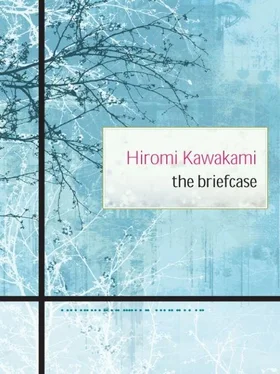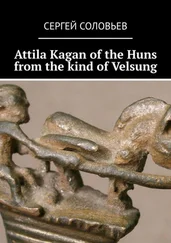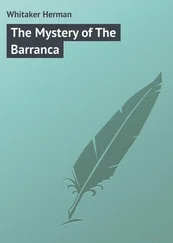The parade music grew significantly louder, and the little people leapt around. The procession finally began to recede. Sensei and I were left in the darkness. Bringing up the end of the line was Mickey, swinging his hips as he slowly walked along. Sensei and I held hands in the darkness. Then I shivered the slightest bit.
SHOULD I TELL the story of the only time that Sensei ever called me from his mobile phone?
I could hear background noise, which was how I knew he was using the mobile phone.
“Tsukiko?” Sensei said.
“Yes?”
“Tsukiko?”
“Yes?”
In a reversal of our usual roles, I became the one who said only “Yes.” “Tsukiko, you really are such a lovely girl.”
“What?”
That was all he said before abruptly hanging up. I called him right back, but he didn’t answer. About two hours later I called Sensei at home, and this time he answered, his voice perfectly serene.
“What was that, before?”
“Nothing, I just suddenly thought of it.”
“Where were you calling from?”
“By the greengrocery near the station.”
The greengrocery? I echoed.
I bought daikon and spinach at the greengrocery, Sensei replied.
I laughed, and Sensei laughed too on the other end of the line.
“Tsukiko, come quickly,” Sensei said suddenly.
“To your house?”
“Yes.”
I grabbed a toothbrush and pajamas and face lotion, throwing them into a bag and scurrying over to Sensei’s house. Sensei stood at the gate to meet me. He took my hand as we went inside to the tatami room where Sensei laid out the futon. I put sheets on the futon. It was like an assembly line as we made the bed.
Without saying a word, Sensei and I collapsed on top of the futon. It was the first time Sensei had embraced me passionately and deeply.
I spent that night at Sensei’s house, sleeping beside him. In the morning when he opened the rain shutters, the berries on the laurel trees gleamed lustrously in the morning sun. Bulbuls came to peck at the berries. Their warbling song echoed throughout Sensei’s garden. Shoulder to shoulder, Sensei and I gazed out at them.
Tsukiko, you’re such a lovely girl, Sensei said.
Sensei, I love you, I replied. The bulbuls warbled their song.
IT ALL SEEMS like so long ago. The time that I spent with Sensei—at first faint, then deepening in intensity—passed me by. Two years from when we encountered each other for the second time. Three years once we began what Sensei referred to as our “official relationship.” That was all the time we shared together.
And since that time, there’s precious little that could be done about it.
I have Sensei’s briefcase. Sensei left it to me.
His son didn’t much resemble Sensei. He had stood silently before me, bowing, and at that moment something about his stance reminded me vaguely of Sensei.
“You were very kind to my dad, Harutsuna, before he died,” his son said, bowing deeply.
When I heard him speak Sensei’s name, Harutsuna, my tears welled up. And I had hardly cried up until that point. I was able to cry when I thought about him as Harutsuna Matsumoto, like a stranger. I was able to cry when I realized that Sensei had already gone away somewhere, before I ever came to know him well.
Sensei’s briefcase lies beside my dressing table. Once in a while I still go to Satoru’s place. Not as often as before. Satoru doesn’t say anything. He’s always moving about, busy at work. It’s warm inside the bar, and there have been times when I even doze off. One mustn’t behave so poorly in public, I’m sure Sensei would say.
In loneliness I have drifted this long way, alone.
My torn and shabby robe could not keep out the cold.
And tonight the sky was so clear
it made my heart ache all the more.
Sensei taught me this poem by Seihaku Irako at some point. I try reading it and other poems out loud when I’m home alone. I’ve been studying a bit since you passed away, Sensei, I murmur.
Sometimes when I call out, Sensei, I can hear a voice reply from the ceiling above, Tsukiko. I’ve started making yudofu like you, Sensei, with cod and chrysanthemum greens. Sensei, I hope we see each other again one day, I say. And from the ceiling, Sensei replies, Surely we shall see each other one day.
Those nights, I open Sensei’s briefcase and peer inside. The blank empty space unfolds, containing nothing within. It holds nothing more than an expanse of desolate absence.
Copyright © 2012 Hiromi Kawakami
All rights reserved under International and Pan-American Copyright Conventions. English translation © Allison Markin Powell, 2012
Excerpts from Seihaku Irako’s poetry appear with permission from the translators, William Elliott and Katsumasa Nishihara. The excerpts on pages 8 and 9 from “Wandering” are reprinted from The Singing Heart: An Anthology of Japanese Poems, 1900–1960 © 2006.
This is a work of fiction. Names, characters, places, and incidents are the product of the author’s imagination or are used fictitiously. Any resemblance to actual persons, living or dead, is entirely coincidental.
Library of Congress Cataloging-in-Publication Data
Kawakami, Hiromi, 1958-
[Sensei no kaban. English]
The briefcase / Hiromi Kawakami ; translated by Allison Markin Powell.
p. cm.
eISBN : 978-1-619-02043-6
1. Women-Fiction. 2. Men-Fiction. 3. Japan-Fiction. I. Powell, Allison Markin. II. Title.
PL855.A859S4613 2012
895.6’36-dc23
2011041521
COUNTERPOINT
1919 Fifth Street
Berkeley, CA 94710
www.counterpointpress.com
Distributed by Publishers Group West

![Хироми Каваками - Strange Weather in Tokyo [= The Briefcase]](/books/29150/hiromi-kavakami-strange-weather-in-tokyo-the-br-thumb.webp)










